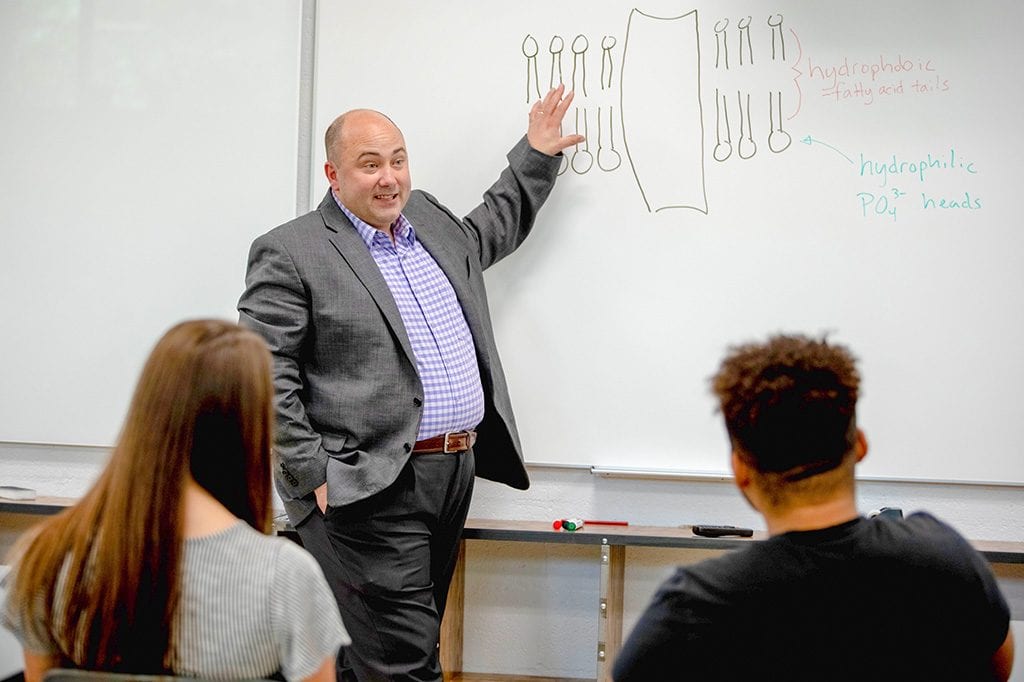Grace Science Professors Give us the Lowdown
We sat down with two of our distinguished faculty to get the inside scoop about what is going on in the greater world of science. Dr. Joe Frentzel, Biology Program Director, and Dr. Andrew Zhou, Assistant Professor of Chemistry, will share their thoughts and experiences with us.
Read on for some expert insight!
There has been some exciting news in the greater scientific community recently, can you tell us about it?
Andrew: Sure. Three lithium-ion battery scientists were honored to receive the 2019 Nobel chemistry prize a few days ago. John B. Goodenough, M. Stanley Whittingham, and Akira Yoshino have made significant contributions in conceptualizing and improving lithium-ion batteries. The Nobel Committee believes lithium-ion batteries have “enabled the mobile world” because they are widely used to power portable electronics such as cell phones and laptops. As a chemist, I have been working in the battery fields in recent years and I am very excited to see these contributions were finally recognized. I believe that lithium-ion batteries can find more applications. For instance, they can be used to power electric cars, or provide electricity when power grids fail to deliver electricity. Such power failure happens globally and has affected billions of people. In fact, it happened to Northern Indiana this past May due to a storm.
What was your reaction when you saw who was honored for the Nobel Chemistry Prize? Why is this so significant for you personally?
Andrew: My first reaction was to say “the award is long overdue”. Lithium-ion batteries have been used to power many kinds of portable electronics since 1991. They can also be used to power electric cars and store renewable energy for grid applications. My second reaction was to say “Praise the Lord”. Dr. John Goodenough is one of the three laureates. I attended his seminars a few times in national meetings where people spoke highly of his scientific achievements and personality. I’ve also read his autobiography titled, “Witness to Grace.” In his book, he says that all the “surprises” in his life were from God’s love and grace. His testimony reminds me that my life is also full of God’s grace and it is God’s grace and guidance that brought me to Grace College.
Science and Faith are often viewed at odds with each other in the secular world. How would you refute that train of thought?
Joe: I agree with you that science and faith often seem pitted against one another, but I don’t think that has to be the case if you give fair consideration to both sides. In reality, the more we discover about the universe, the more obvious it becomes that a thoughtful designer has authored every single aspect of the universe. The complexities are just too detailed to be the product of chance and circumstance.
Andrew: To my understanding, God created science and then transcends science and can not be limited by science. Indeed, many Christian scientists study science to get to know its Creator better. We see that it’s possible through several major players in science. After all, Dr. John Goodenough is called the Father of lithium-ion batteries. Additionally, Michael Faraday and Robert Boyle are both Christians and called the Father of Electricity and the Father of Modern Chemistry.





